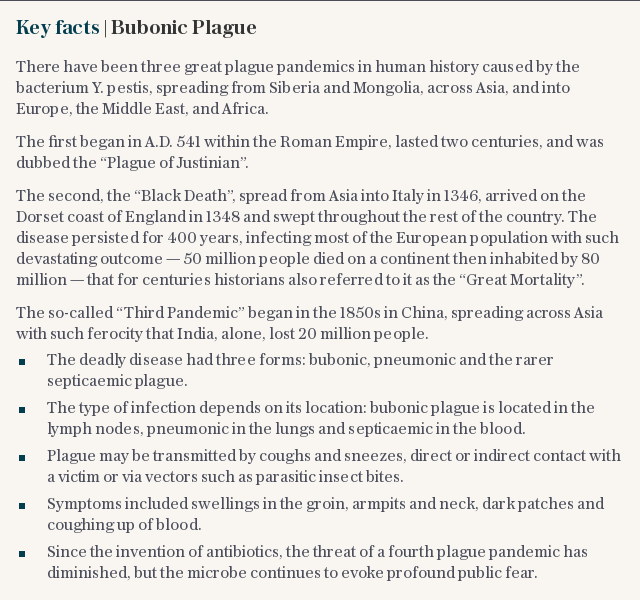Russia bans marmot hunting after reports of bubonic plague in China and Mongolia

Russia has increased efforts to prevent the public from hunting marmots after reports of cases of bubonic plague in neighbouring China and Mongolia.
Two cases in Mongolia last week were linked to people in the western province of Khovd eating marmot meat. Then, on Sunday, a warning was issued by authorities in the Chinese city of Bayan Nur, located in the Inner Mongolia region, after a local hospital reported a suspected case.
The region has now explicitly forbade the hunting and eating of all large rodents and told the public to report any sick or dead marmots they find, as well as suspected cases of the plague. These plague-prevention mechanisms will be enforced for the rest of the year.
In Russia’s Altai region, which borders China, Mongolia and Kazakhstan, authorities have been dispatched to patrol the area to ensure the ban is enforced, TASS news agency reported.

The local consumer health watchdog has said they “are curbing illegal hunting on marmots and conducting an awareness campaign with breeders about the strict rules”.
WHO spokeswoman Margaret Harris said the organisation was aware of the outbreak and monitoring it but, "at the moment we are not...considering it high-risk.”
The Russian-Mongolian border has been closed to all but essential goods since mid-March due to the coronavirus outbreak. Temperature checks are conducted on all truck drivers by Russian border agents.
Marmots are a native cuisine of Mongolia and Siberia, and have been eaten by local people for centuries. Barbecued marmot, known as boodog, is a delicacy in Mongolia. Russia in 2014 outlawed marmot hunting which is still popular with indigenous people in the Altai region close to the Chinese border.

Several cases of bubonic plague were reported there in 2014 through 2016, all connected to marmot meat, and plague vaccination in the region has since been expanded.
In May 2019, a Mongolian couple died after contracting bubonic plague by eating raw marmot kidney in the most westerly region of Mongolia. The region was placed under quarantine for six days at the time.
Also known as the Black Death in the Middle Ages, the bubonic plague is a highly infectious, often lethal disease spread primarily by fleas and rodents. It causes a high fever, chills and large areas of swelling on the skin, known as buboes. According to the World Health Organisation, if left untreated, 30-60 per cent of those who contract the disease die.
In the mid-1300s, an outbreak of bubonic plague in Europe killed one-third of the entire population of the continent. Modern research suggests that outbreak was also linked to the steppes of inner Mongolia.
However, modern, widely-available antibiotics are able to cure the disease with relative ease.

 Yahoo News
Yahoo News 
